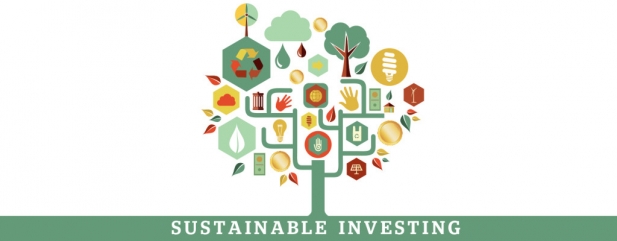Archived article
Please note that tax, investment, pension and ISA rules can change and the information and any views contained in this article may now be inaccurate.
Sustainable investing is hitting the mainstream

The sustainability debate has long since leapt out of the activist tree-hugging camp and onto the political agenda. Investors now face choices that go far beyond the simplistic ‘don’t buy guns and cigarette firms’. Sustainability is now in the mainstream.
This investing philosophy has attracted some big names in recent years, such as the launch last year by Bill and Melinda Gates of a $2bn green energy Breakthrough Energy Ventures fund. Its goal is to invest in technologies to reduce greenhouse gas emissions by
at least half a gigaton.
Seven Investment Management (7IM) recently flagged that a sustainable fund featured in the list of top 10 funds traded over its platform. The Liontrust Sustainable Future Corporate Bond 2 (GB0030029069) aims to beat gilt returns by investing in corporate debt.
‘The fact that a fund focused on sustainability has made the tables during the all-important ISA season suggests a resounding yes (to sustainable investing starting to hit the mainstream),’ says Camilla Ritchie, fund manager at 7IM Sustainable Balance Fund (GB00B1LBFZ86). ‘That is very encouraging to see.’
GROWING EVIDENCE
As the recent Facebook/Cambridge Analytica personal data scandal shows, the fine line between being just a good investment and being a good corporate citizen as well is becoming more complex, and more wide reaching in the digital age.
‘While these digital giants have delivered undoubted benefits to the consumer, have those benefits allowed them to grow too big, to the extent that they can neglect their responsibility to wider society?’ pondered Allianz Global Investors fund manager Walter Price last month.
A fair day’s pay for a fair day’s work, decent health and housing, protecting the environment, access to enough food and clean water; these are the sorts of things any rational global citizen is likely to believe in. And that means they increasingly only want to invest in companies and assets that also reflect these core beliefs.
Studies have shown this is particularly evident in the emergence of a new generation of investors referred to as Generation Y, or the Millennials. These are people born between 1982 and 2000.
With an estimated $200bn a year of buying power, it gives them a meaningful voice, and one that will get louder as they get older and, presumably, more interested in saving and investment.
MARKET MOVING TO SUSTAINABILITY
As you might expect, the financial services industry, in this country and overseas, are moving heaven and earth to meet this changing investment dynamic.
Suppliers are racing to get new sustainable, responsible, ethical or values-based funds to the market. Niche providers such as Edentree and Triodos Bank (the latter even has even launched an ethical savings account) have swollen the ranks of existing sustainable offers.
But the investment market heavyweights are also jumping on to sustainability, or their version of it, head first.
BlackRock says sustainable and impact investing strategies are attracting ‘a significant amount of interest as well as assets from investors’. It launched the BlackRock Strategic Funds Impact World Equity Fund (LU1254583351) in 2015 and
its value has since soared by around 40%.
‘Sustainability is meeting the needs of the future without comprising the needs of today,’ Meryam Omi, Legal & General Investment Management’s head of sustainability explains to Shares.
Fidelity International has extended its research into areas like controversy data (environmental disasters, product safety recalls and bribery scandals) alongside more typical climate change analysis because it believes that ‘investing in companies which operate with high standards of corporate responsibility can protect and enhance investment returns for our clients’.
Slowly but surely sustainability is changing behaviour right across the investment sphere. ‘We are seeing an increasing shift away from negative screening to positive screening,’ says Amanda Young, head of responsible investing at Standard Life.
Essentially, people are thinking more in terms of what they want to invest in, and less what they want to avoid.
Important information:
These articles are provided by Shares magazine which is published by AJ Bell Media, a part of AJ Bell. Shares is not written by AJ Bell.
Shares is provided for your general information and use and is not a personal recommendation to invest. It is not intended to be relied upon by you in making or not making any investment decisions. The investments referred to in these articles will not be suitable for all investors. If in doubt please seek appropriate independent financial advice.
Investors acting on the information in these articles do so at their own risk and AJ Bell Media and its staff do not accept liability for losses suffered by investors as a result of their investment decisions.

 magazine
magazine











